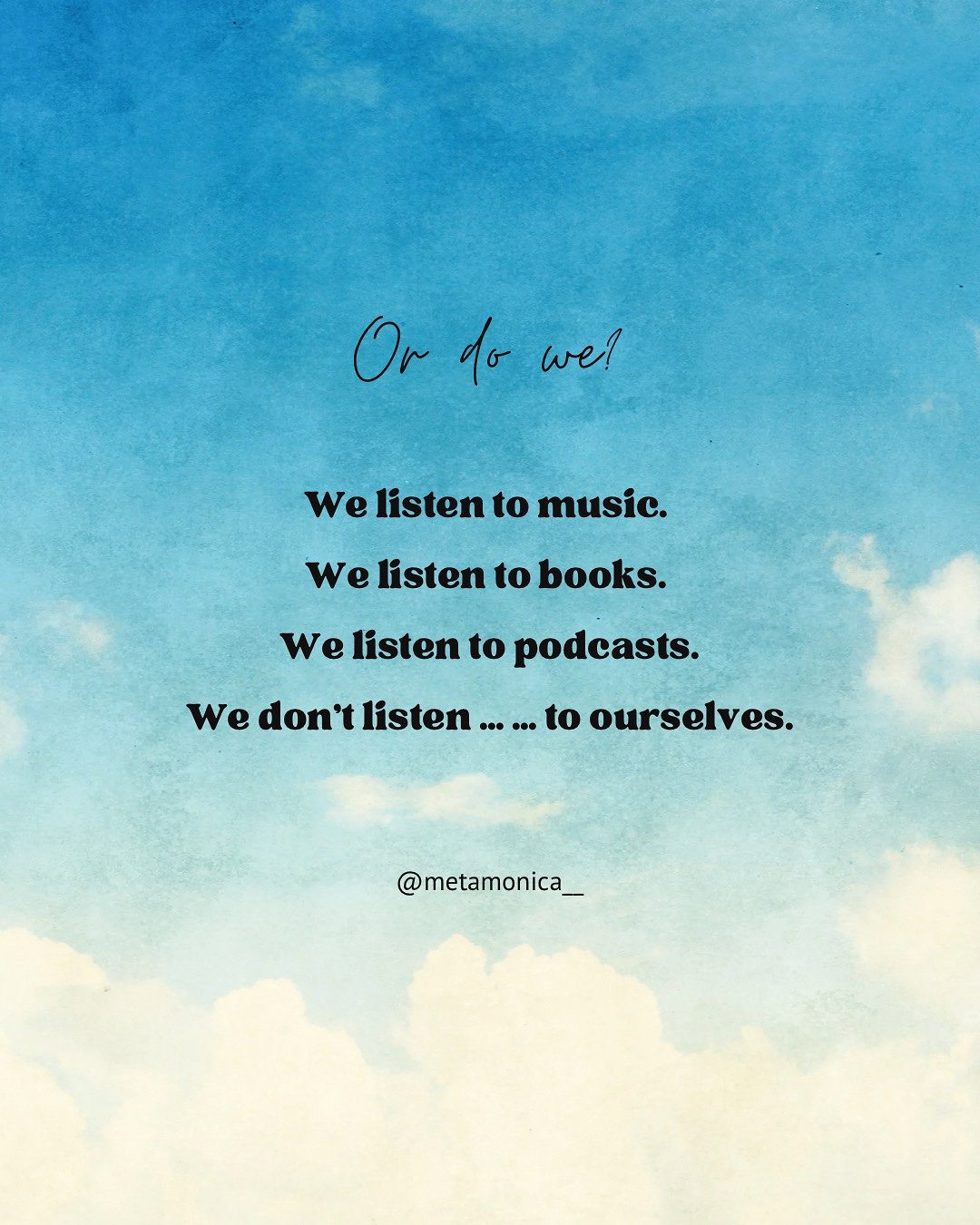Listening to ourselves is an ongoing process, a lifelong learning journey that isn’t always easy to start. But once we begin, it allows us to become aware of the barriers we’ve cultivated and the reasons behind them.
Many of us grow up with so many expectations from others and ourselves, and sometimes we’re afraid that if we truly listen to ourselves, we’ll be disappointed, hurt, or angry at what we hear. This is particularly true for people who have experienced difficult and painful experiences.
Sometimes the emotions and thoughts that come up when we try to listen to ourselves can feel so utterly heartbreaking, overwhelming, and even chaotic, that we’d rather not listen to ourselves at all.
But here’s the thing: in the process of self-listening, what matters the most is to notice what comes up.
After that, we can use strategies to help us understand and address those barriers. These strategies might include coping with intense self-judgement or fear of loss.
So, how can we actively start listening to ourselves? Here are three ways:
- Practice mindfulness. Take time each day to sit in stillness and listen to your thoughts and emotions. Don’t judge them, just observe them.
- Keep a journal. Writing down your thoughts and feelings can be a helpful way to process them and gain insight into your inner world.
- Seek support. Whether it’s a therapist, a coach, or a trusted friend, having someone to talk to can help you better understand and listen to yourself.
Remember, self-listening is a journey, not a destination. It takes time and patience, but the rewards are worth it.
By learning to listen to ourselves, we can gain a deeper understanding of our own needs, values, and desires, and make choices that align with who we truly are.
